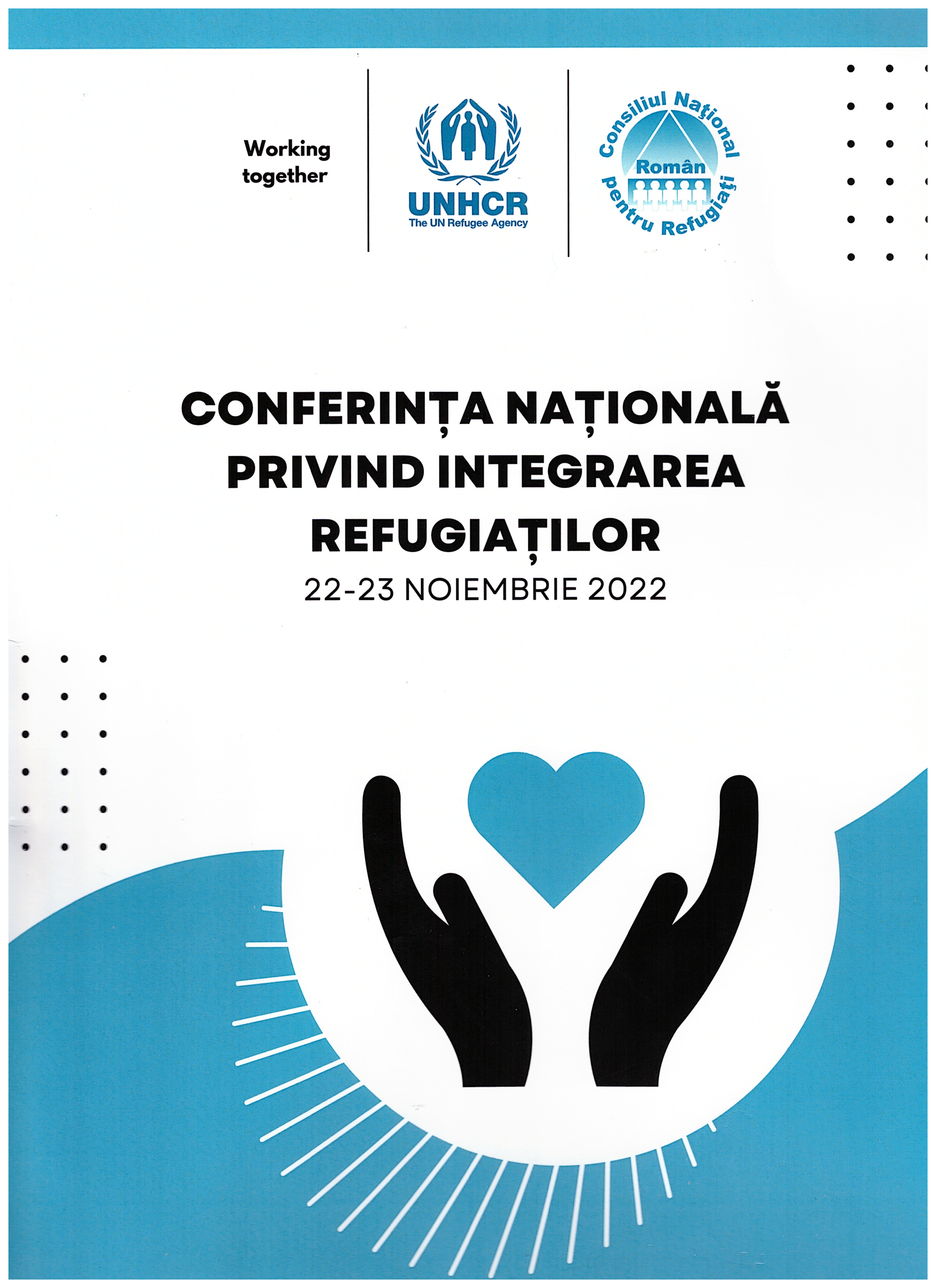The Romanian National Council for Refugees, in collaboration with the United Nations High Commissioner for Refugees (UNHCR), organized, on November 22-23, the National Conference on the Integration of Refugees to discuss actions, progress and current issues related to the integration of Ukrainian citizens in Romania.
The event brought together representatives of public authorities, such as the Chancellery of the Prime Minister, the Department for Emergency Situations, the General Inspectorate for Immigration, the Ministry of Education, the School Inspectorate of the Municipality of Bucharest, the National Health Insurance House, the National Authority for the Protection of Children's Rights and Adoption , as well as civil society actors, non-governmental organizations involved in the process of integration of Ukrainian citizens.
The representatives of the Ministry of Education (General Directorate of Pre-University Education and the National Center for the Recognition and Equivalence of Diplomas/CNRED) presented the legal framework for the integration of children into the education system in Romania, of students to continue their studies in higher education and for integration into the labor market , including through the recognition of diplomas.
CNRED also brought to public attention the fact that Romania, through the Ministry of Education, is one of the partners of the European Qualifications Passport for Refugees (EQPR) project launched in 2017 by the Council of Europe, with the support of the UN Refugee Agency, to facilitate the integration of refugees.
The conference also provided the framework for discussions and the identification of solutions for the current problems that arise in the integration of refugee citizens in Romania, from the situation at the border and accommodation to access to health, education and work services.
In the context in which the integration of refugees and displaced persons has become of major importance amid the escalation of armed conflicts at the global level, strengthening partnerships between institutional actors and civil society is a priority, including at the national level.
The Ministry of Education, through specialized structures, will thus continue to develop the normative and operational framework that will provide concrete support in the integration of refugees.

- 1043 reads




